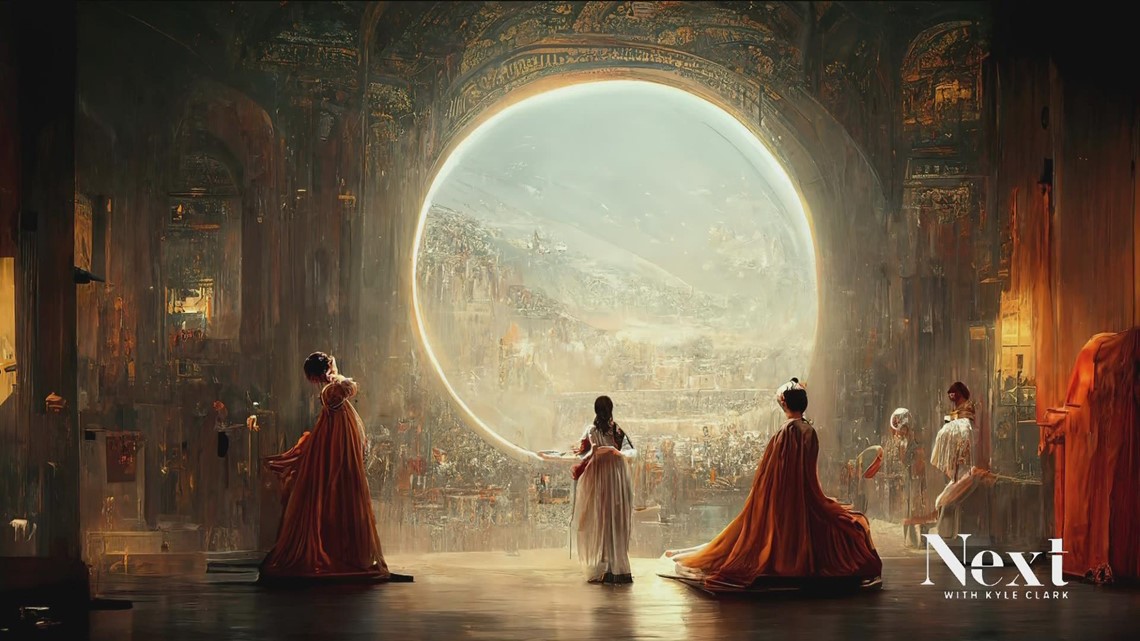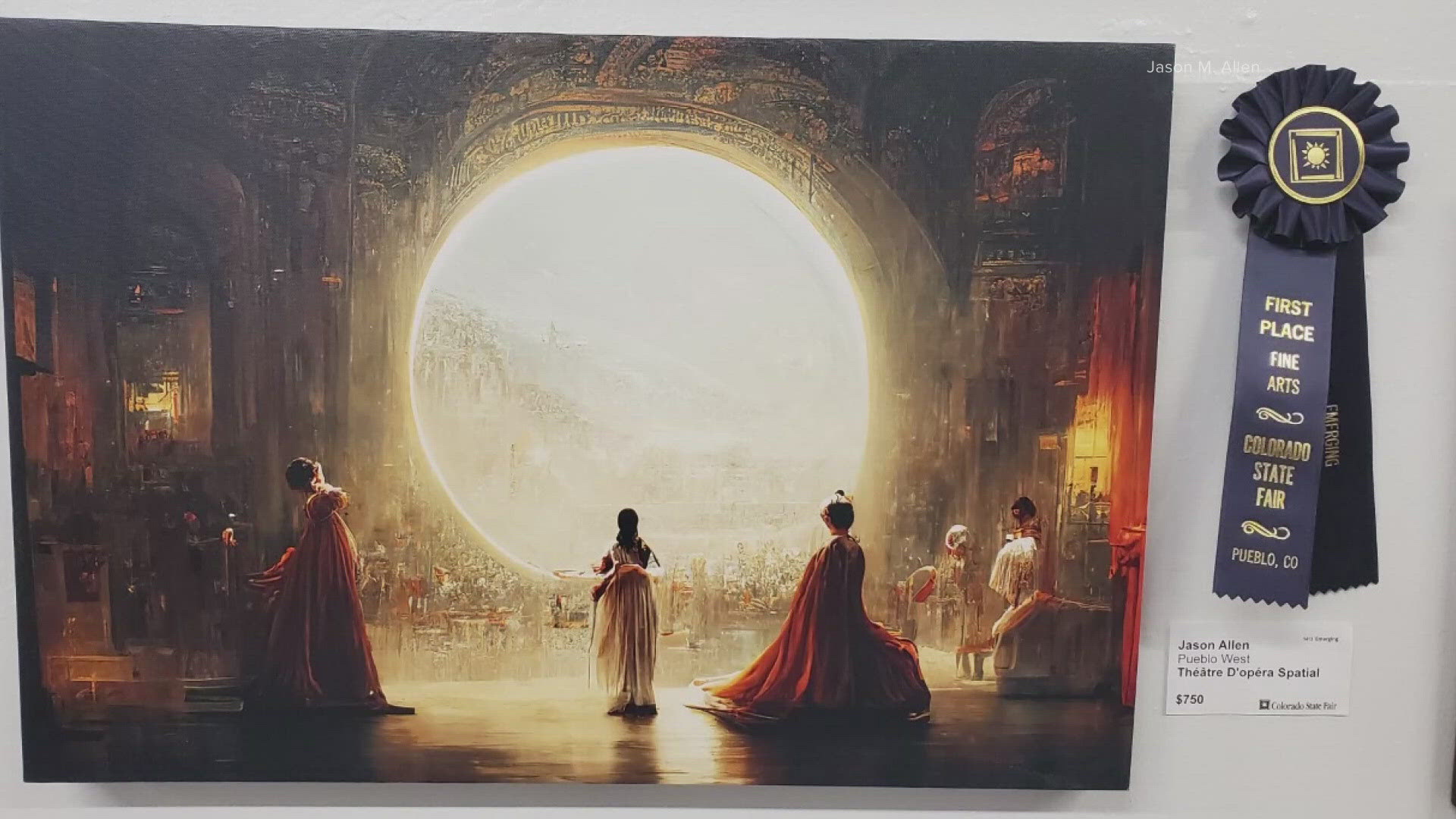COLORADO, USA — A Colorado artist's controversial entry at a state fair will likely lead to a lengthy legal battle over who owns his work.
Jason Allen first made headlines in 2022 when his AI-assisted artwork titled "Théâtre D'opéra Spatial" won the digital arts competition at the Colorado State Fair. Allen said it took him dozens of hours to create the artwork, which involved feeding hundreds of prompts into the artificial intelligence software Midjourney.
Allen said after the artwork gained notoriety, other people have been cashing in on his work by selling copies online.
"There have been instances where people outright have ripped off my work, incorporated the entire piece into a new piece," Allen said. "There are people who have literally posted my work for sale in print or as crypto and are trying to sell it on OpenSea or Etsy."


Allen said the U.S Copyright Office has denied his copyright registration requests saying AI, not Allen, was the true creator of the artwork. This week, Allen appealed that decision in federal court. The lawsuit argues Allen's use of AI is effectively the same thing as another artist using a camera or paintbrush.
"I think it's a mistake to attribute human characteristics to something that isn't human," Allen said. "It's as ridiculous, in my view, as attributing authorship to a paintbrush."
Allen's attorney, Tamara Pester, said the Copyright Office has questioned new technologies in the past.
"When photography was invented back in the 1880s, someone tried to register the copyright in the photograph, and the Copyright Office denied that also," Pester said. "They thought the camera was the author, not the human."
Read the full lawsuit below:
Allen's lawsuit could set a precedent for how AI is used in other creative works like art, music and film. This is not the first time federal courts have wrestled with the question of who owns AI-generated content.
In August, a federal court in Washington, D.C. rejected a similar copyright appeal, but the artwork in Thaler v. Perlmutter was created solely by an algorithm without any human input. The court decided the work lacked the "human authorship" necessary to support a copyright claim.

